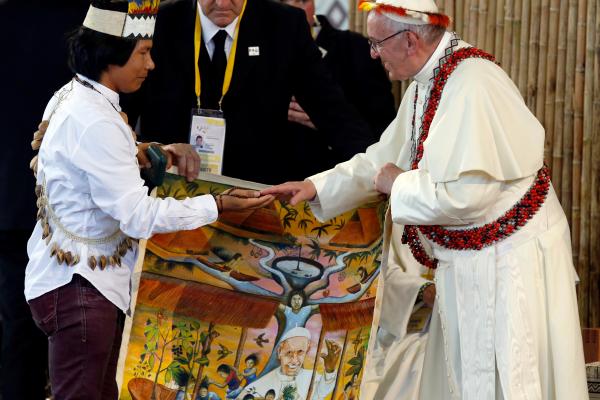Jan 19, 2018
"The native Amazonian peoples have probably never been so threatened on their own lands as they are at present," the pope told a crowd of indigenous people from more than 20 groups including the Harakbut, Esse-ejas, Shipibos, Ashaninkas, and Juni Kuin.
Read the Full Article

Already a subscriber? Login
